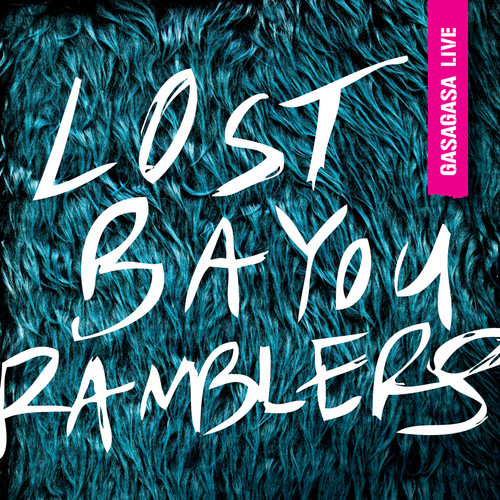 Review Fix chats with Lost Bayou frontman Louis Michot, who discusses the band’s new album, “Gasa Gasa Live.†Breaking down the band’s creative process as well as their goals for the future Michot gives us an inside look at the cool Cajun Rock band and what makes them tick
Review Fix chats with Lost Bayou frontman Louis Michot, who discusses the band’s new album, “Gasa Gasa Live.†Breaking down the band’s creative process as well as their goals for the future Michot gives us an inside look at the cool Cajun Rock band and what makes them tick
Review Fix: What makes Cajun Rock different from mainstream rock?
Louis Michot: Cajun music is an American music with very diverse roots from Acadian, French, Creole, African, Spanish, German, and all the jazz, rock’n’roll, western swing, all mixed up and sung in Cajun French. All we’re doing is playing Cajun music, a music that already rocks, and not holding it back to a “traditional” idea.
Review Fix: Are you getting excited for the upcoming tour? What are your hopes for it?
Michot: The upcoming tour to release of Gasa Gasa Live is super exciting, it will be the first time we perform with a full time electric bass player, Korey Richey, who plays bass on the album. We’ve experienced such a growth in fans and notoriety for what we do since Mammoth Waltz, and we’re ready to bring our fans a new recording, and a deeper live show.
Review Fix: What do you think makes this band special?
Michot: Lost Bayou Ramblers brings the world pure Cajun music wrapped in the modern sounds of our generation, an organic direction in this unique music. It’s like experiencing a foreign music in another language, Cajun French, but it’s completely an American music, and people feel the familiarity at the same time as exotic curiosity.
Review Fix: What’s your creative process like?
Michot: We write songs as they come to us, from whatever life situation or inspiration, and pull them together either in the studio or on stage. It’s a constant evolution. Many of our best arrangements happen live on stage.
Review Fix: What makes “Gasa Gasa Live” special?
Michot: We love playing in New Orleans, and the day we recorded Gasa Gasa Live, it was our first time to ever play there, and was our 3rd of 4 shows that day. On top of it being a brand new experience, in the rambling haze of that huge day, we were not aware that the show was being recorded. We had one of those amazing nights, where the crowd was on fire, and the music seemed to play itself, and we were playing with the normal self-conscious feeling of recording a live album. They told us after the show that they recorded it, and we gave it a listen a few days later, and decided immediately that we have to release it. The performance is full of on-stage inspiration, new arrangement, and lyrics that were sung in the moment, not everything note for note, but a living example of creation, which is what’s so beautiful about music, the ability to process and express the blues we experience each day of this human life.
Review Fix: What did you learn about yourself from this album?
Michot: You never know when you’re gonna be recording your next album, press the record button when in doubt.
Review Fix: What song to you think is most indicative of the band’s sound?
Michot: Acadian Waltz, is an old structure, improvised on the spot, with new lyrics sang out the moments inspiration. It really represents the Cajun music that rocks, the blues, and ability to make a song sound like Iry Lejeune and AC/DC at the same time.
Review Fix: How was that song written? Does it have a story behind it?
Michot: We basically played an old melody, and I (Louis) sang the blues that were in my heart, from another time in life, so it’s a personal and universal love story of pain and loss.
Review Fix: What other tracks have cool stories behind them?
Michot: “J’suis Parti Pour Texas” is a song from the 1920s written by Amede Breaux, talks about how he went to Texas to meet his girlfriend, and his momma started crying and said he was killing her by going to Texas. When he gets there and meets his girlfriend, he concludes that a true love was never lost. It’s such a great tune, so joyful and so sad, both lyrically and melodically.
“Blues de Bernadette” is an original tune by Louis Michot, about a friend of the family who suffered huge losses to her family, losing her son and husband on Thanksgiving and Christmas of the same year. She may be poor and suffering on earth, but her riches will be in heaven because she has been such an amazing woman in life.
“O Marie” is a song by Daniel Lanois, about the French Canadians who would work in the tobacco fields, representing the Franco-North Americans being seen as lower class field workers, much as the Cajun stereotype was for many years, until Americans realized that it’s actually cool and beneficial to speak two languages. The song also parallels the struggles of a touring musician, making money to send home, and waking up with a hangover and praying to Mary for relief.
Review Fix: After this tour, what is next for you guys?
Michot: We’ll be going back into the studio to finish up our next studio album, which we started in Montreal last summer, plus some international touring playing in front of an orchestra for some live screening of Beasts of the Southern Wild.


Leave a Reply